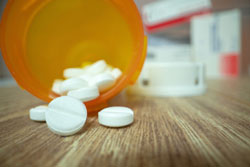Newark, New Jersey, is the second-largest city in the state and has been profoundly affected by the current opioid crisis throughout the world. Newark has dealt with socioeconomic issues for quite some time, which has led to inflated drug overdoses. The only way to combat these serious issues affecting the city is to make opioid treatment in Newark available on a mass scale. Our article aims to dive into the scope of opioid abuse in the area and its treatment.
Opioids share a long, and we should add, successful history to treat pain. The drugs are sometimes prescribed on a short or long-term basis and can be beneficial to a person recapturing their life once interrupted by pain. The most common prescription opioids include codeine, hydrocodone, oxycodone, morphine, and hydromorphone. Another drug used in treating chronic pain is fentanyl, which pain management physicians typically use as a last resort when exhausting all other opioid options.
While heroin use has been a problem for quite some time, it emerged as an epidemic once government restrictions were put in place for prescription opioids. Heroin is considered an illicit opioid that is cheaper and more potent than prescription drugs. Although it has a long history of use, we’ve recently seen fentanyl made in clandestine labs emerging nationwide. Dealers add the drug to heroin to boost profits and make their product more potent. It has led to fatal overdoses nationwide.
Even for those who use prescription opioids in moderation or for those consuming illicit drugs, it doesn’t take a lot to develop a tolerance. Shortly after your first dose, you’ll notice the need to take more to achieve your desired effect. When this occurs, users are on their way to developing a full-blown opioid addiction or opioid use disorder. Once you reach this level, it’ll be challenging to stop using without help.
Opioid addiction affects those who don’t even use the drugs, and each day we hear more stories about the devastation it’s causing. Places like Newark have become collateral damage in opioid addiction and its unconscionable quest to destroy the world. If there’s any silver lining, opioid treatment in Newark is among the highest-ranked in the country.
If you’re at your wit’s end and want to change your life, opioid treatment in Newark is here to help. You are one phone call away from changing your life, so continue reading to learn more about how it affects your area.
How Opioid Addiction is Affecting Newark
According to the Drug Enforcement Administration (DEA), African Americans are among the worst affected by the opioid epidemic. Essex County accounted for nine percent of New Jersey’s population but accounted for more than 12.5 percent of all opioid-related drug overdoses in 2017. The mortality rate in Essex County was much higher for the African American community than other races in the region.
Opioid addiction causes more than just heartache, death, and devastation to families; it has a significant financial impact on the communities that house the drug users. The state of New Jersey reported 2,900 drug overdoses statewide in 2018, 2,583 of them involved opioids. Drug users not in their right mind might share needles, which causes a public health emergency for diseases, including HIV and hepatitis C.
Newark Substance Abuse Statistics
According to the New Jersey Substance Abuse Monitoring System, substance abuse treatment admissions in 2018 were staggering. An estimated 3,706 people who entered treatment, or 44 percent of all admissions, were for heroin. Another 377 were for other opiates, which accounted for four percent. The data also shows that 1,354 admissions were for intravenous drug users, which accounted for 16 percent of all entries into treatment.
The most admissions included those between 45 and 54, which accounted for 27 percent of all admissions, and 74 percent of them were treated within Essex County. African Americans accounted for the most entries at 60 percent.
Newark Opioid Withdrawal and Treatment
For those who’ve gone through opioid withdrawal, you know the process is rarely life-threatening. Unfortunately, it’s an emotionally and physically draining process that hardly ends in success. The withdrawals are sometimes so severe, the person in question will relapse to avoid the symptoms.

The symptoms mimic a severe version of the flu, such as diarrhea, nausea, and vomiting. It’s typically accompanied by dehydration, intense sweating, and a low-grade fever. One of the most dangerous aspects of opioid withdrawal is dehydration, which requires immediate medical attention, especially if you can’t keep any liquids down due to vomiting or diarrhea.
If you commit to opioid treatment in Newark, the first step will be to enter medical detox. The process will be overseen by medical professionals who will provide the right care to ensure comfort and safety. They could provide fluids, medication, and a shoulder to lean on when it gets tough. If you’re looking to overcome potent opioids, you must seek help.
Upon successful completion of detox, depending on your situation, you will move into a treatment level suitable for your current needs. It could mean a residential or outpatient treatment facility that will help guide you into a life of sobriety.